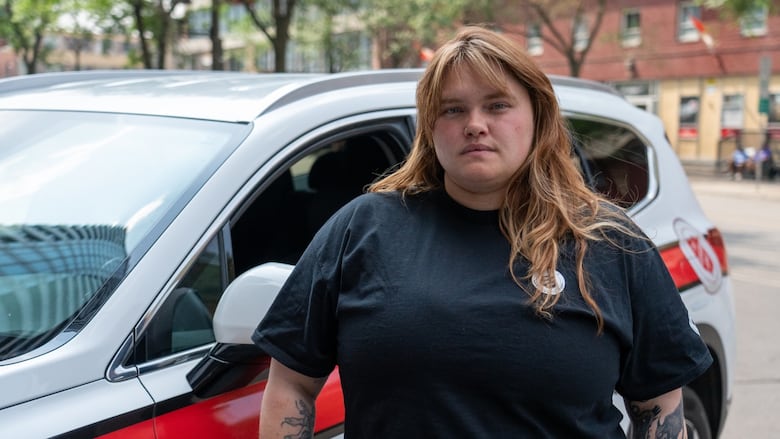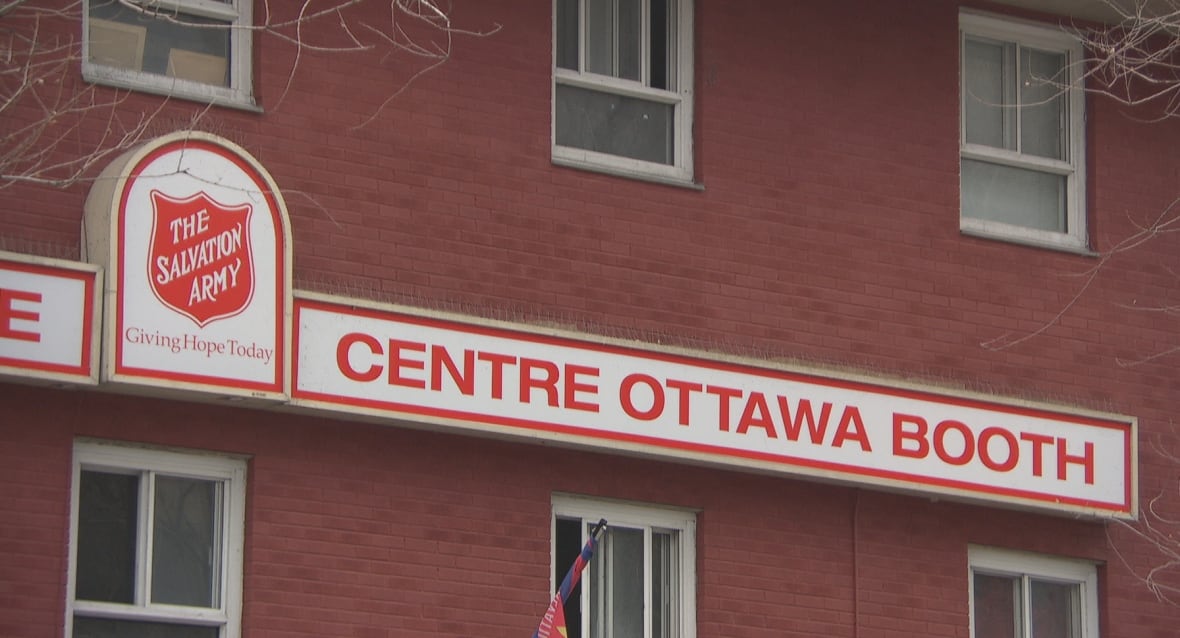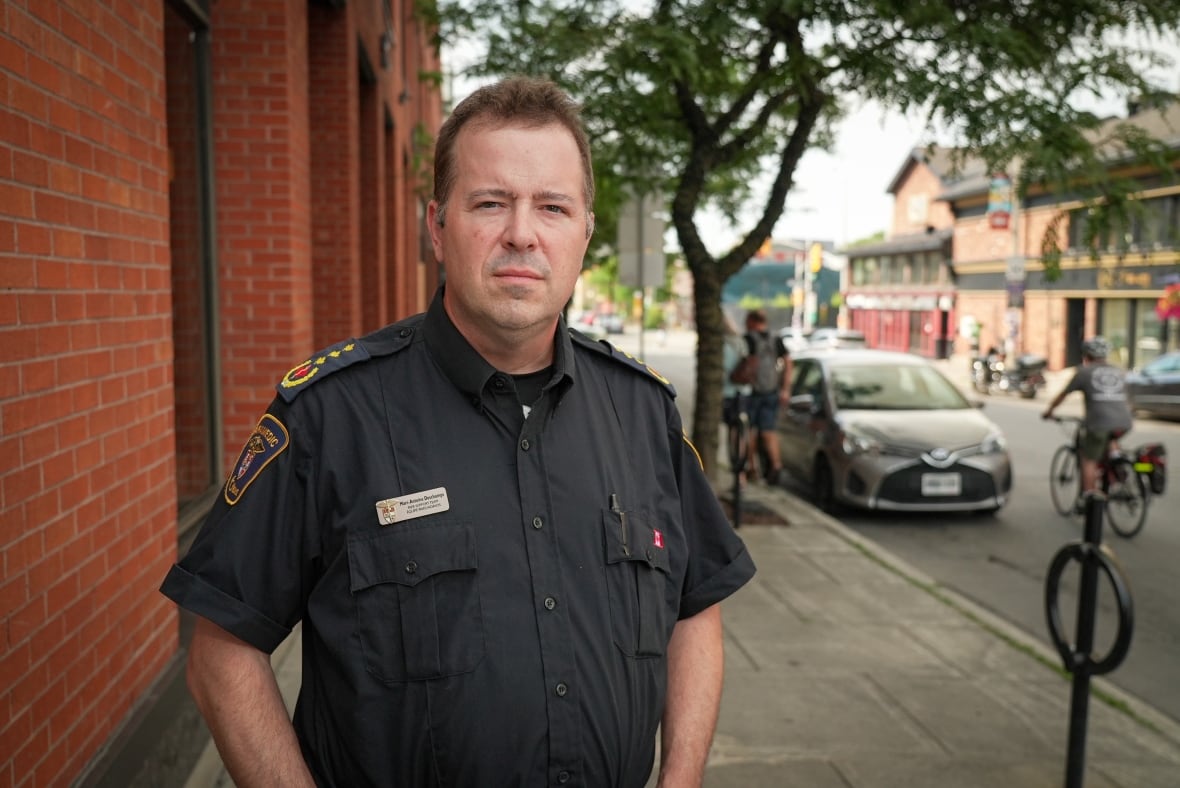Extreme heat outreach stretching shelter workers, resources thin
The Salvation Army Booth Centre says more people experiencing homelessness are requesting their services

Extreme heat this summer has put a strain on an emergency shelter in the ByWard Market that's seeing more people experiencing homelessness who need support in the hot weather.
Roughly 400 people living outside are requesting the shelter's services this year, an increase of about 70 people compared to last year, according to Mikyla Tacilauskas, manager of outreach and housing services at the Salvation Army Booth Centre in Ottawa.
That figure represents just a fraction of Ottawa's total homeless population. The city's latest point-in-time count conducted last October found there were 2,952 homeless people in Ottawa — an increase of more than 300 people since the last count in 2021.
"We're seeing a large increase in individuals who are actively sleeping outside," Tacilauskas said. "When we add the heat to those large increases, we see increased medical emergencies and our attention is directed to responding to those medical emergencies rather than working on long term housing goals."
Tacilauskas manages a team of outreach workers who patrol the city, giving out water, sunscreen, hats and other items, and transporting people to areas where they can cool off.
It's a 24-hour a day job that's keeping Tacilauskas and her team busy this summer, which has already produced several extended heat warnings in eastern Ontario.
Environment Canada has issued another multi-day heat warning for this weekend, with daytime highs between 30 to 33 C expected to begin Saturday.
Prioritizing need
People in need are dispersed across the city, making it difficult for workers to reach everyone, Tacilauskas said.
"We are seeing them throughout the city of Ottawa in forests, in wooded areas, bushes, but also downtown in your more urban locations as well," she said.
"My teams don't have capacity to find everybody who's sleeping outdoors in a 24 or 48 hour window, so we do have to pick and choose the individuals who we think are at most risk of harm and hope that's good enough."

When medical attention is required, Tacilauskas said the outreach workers redirect those affected to police or paramedics.
Those without shelter at higher risk
In the ByWard Market and Centretown, there are paramedics stationed daily who also step into action during extreme heat, providing water and administering medical aid.
Marc-Antoine Deschamps, a spokesperson with the Ottawa Paramedic Service, says while paramedics haven't responded to many calls for heat related illness this summer, it's important they're around to monitor the communities.
"We have to remember the longer a heat wave lasts, the less reprieve we get at night, the more people get affected and obviously the shelter community is part of the vulnerable population," Deschamps said.

Dr. Sehjal Bhargava, a family physician who works in Centretown, says she has seen patients who are dealing with the impacts of heat every day this summer.
"People that live with lack of shelter or don't have the ability to move their environment, to change their environment to adapt to these heat waves are the people who end up with really serious health impacts or needing emergency care or long term hospital admission," Dr. Bhargava said.
Prolonged exposure to temperatures above 26 C, she explained, can cause heat stress, and tissue and organ damage in the long term.
"This really indicates the need for … upstream policy intervention to help support people who are vulnerable," Bharghava said. "Accessing cooling shelters, for example, or increasing the capacity of overnight cooling shelters when those night time temperatures don't drop below 26 C."
The city's interim director of housing and homelessness Kale Brown said the city and its community partners ensure that people experiencing homelessness have access to shelters, drop-in programs and outreach services during extreme weather events.
An interactive map from Ottawa Public Health highlights more than 100 public facilities, including recreation centres and libraries, where people can go to seek relief from the heat during operating hours.
Tacilauskas said her team's priority this weekend will be helping people keep cool to avoid burdening emergency services.
"Our focus is going to be diverting people from hospitals, from paramedic services into locations where we can get their body temperature cooler, we can get them as much water as they need, hats, sunscreen, whatever we can to prepare them for this event."

